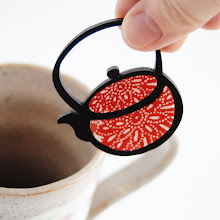The comments on my last post, The Christmas That Isn’t, really got me wondering about when and why Japan started "celebrating" Christmas. Wikipedia had this to say;
"Encouraged by the commercial sector, the secular celebration of Christmas is popular in Japan, though Christmas is not a national holiday. The Japanese have adopted the character of Santa Claus in their celebrations. Christmas is not as important to most Japanese as New Year's Day. In contrast to Western customs, Christmas Eve is a day for couples to date and groups to hold parties, while the official New Year's Day holiday is a day of family celebration. Most Christmas decorations come down on the 25th and are replaced by New Year's decorations. A unique feature of Christmas in Japan is the Japanese type of Christmas cake, often a white whipped cream cake with strawberries.
The first recorded Christmas in Japan was celebrated with a mass held by Jesuit missionaries in Yamaguchi Prefecture in 1552, although some believe that unrecorded celebrations were held prior to this date, starting in 1549 when Saint Francis Xavier arrived in Japan to begin missionary work. Starting with the expulsion of missionaries in 1587, Christianity was banned throughout Japan beginning in 1612, a few years into the Edo Period, and the public practice of Christmas subsequently ceased. However, a small enclave of Japanese Christians, known as Kakure Kirishitan ("hidden Christians"), continued to practice underground over the next 250 years, and Christianity along with Christmas practices reemerged at the beginning of the Meiji period. Influenced by American customs, Christmas parties were held and presents were exchanged. The practice slowly spread in major cities, but its proximity to the New Year's celebrations makes it a smaller focus of attention. During World War II, all celebrations and customs, especially those from America, were suppressed. From the 1960s, with the aid of a rapidly expanding economy, and influenced by American TV dramas, Christmas became popular, but mostly not as a religious occasion. For many Japanese, celebrating Christmas is similar to participating in a matsuri, where participants often do not consider which kami (god) is being celebrated, but believe that the celebration is a tribute nevertheless. From the 1970s to the 1980s, many songs and TV drama series presented Christmas from a lover's point of view."
Monday, December 31, 2007
Subscribe to:
Post Comments (Atom)


No comments:
Post a Comment